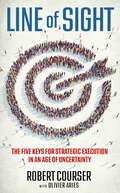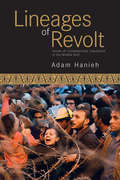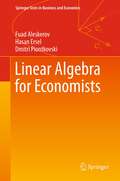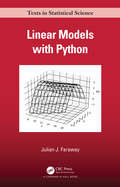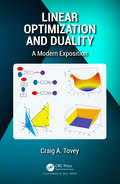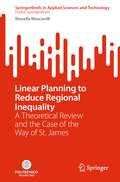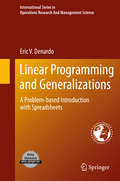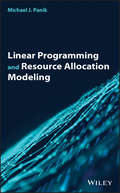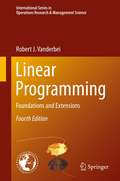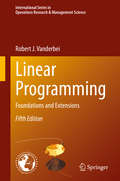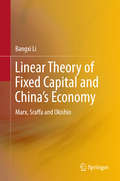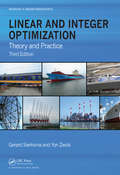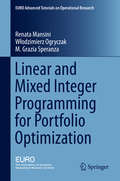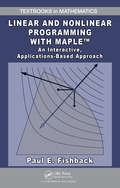- Table View
- List View
Linda Oubr at Whittier College (B)
by Debora L. Spar Haley P. BrownThe case follows President Linda Oubr (HBS MBA Class of 1984) as she seeks to move Whittier College towards a more diverse, equitable, and inclusive campus. In 2020, the student body of Whittier, a private liberal arts college in Los Angeles County, California, is slowly evolving to represent the growing diversity of the surrounding area. Roughly 70 percent of Whittier students are non-white, and 59 percent are female. The college's leadership, however, remains largely white and male. Oubr , who had spent most of previous career in business, was selected as the college's president in 2018 - the first black woman to serve in that role. Almost immediately upon stepping into the role, Oubre set her sights on diversifying the college's staff, administration, and board of trustees; in 2020, the racial reckoning that swept across the United States only heightened the urgency of her task. Oubr knows that sweeping change is needed at Whittier. But change, of course, is hard. How can she continue to push for diversity among faculty, staff, board members, and students? And how can she galvanize support among all of the college's many constituents?
Linda Oubr at Whittier College (C)
by Debora L. Spar Haley P. BrownThe case follows President Linda Oubr (HBS MBA Class of 1984) as she seeks to move Whittier College towards a more diverse, equitable, and inclusive campus. In 2020, the student body of Whittier, a private liberal arts college in Los Angeles County, California, is slowly evolving to represent the growing diversity of the surrounding area. Roughly 70 percent of Whittier students are non-white, and 59 percent are female. The college's leadership, however, remains largely white and male. Oubr , who had spent most of previous career in business, was selected as the college's president in 2018 - the first black woman to serve in that role. Almost immediately upon stepping into the role, Oubre set her sights on diversifying the college's staff, administration, and board of trustees; in 2020, the racial reckoning that swept across the United States only heightened the urgency of her task. Oubr knows that sweeping change is needed at Whittier. But change, of course, is hard. How can she continue to push for diversity among faculty, staff, board members, and students? And how can she galvanize support among all of the college's many constituents?
Linden Lab: Crossing the Chasm
by Thomas R. Eisenmann Alison Berkley WagonfeldIn early 2008, managers at Linden Lab, creator of the virtual world Second Life, faced decisions about the company's growth strategy. Despite profound initial skepticism about demand for a user-generated virtual world that was not a traditional game, Second Life had achieved profitability and strong growth. However, sustaining growth would prove challenging. Growth had strained Linden Lab's technical infrastructure. Also, although Second Life had attracted a large, loyal base of early adopters, it was unclear whether their preferences were similar to those of mainstream consumers. In this context, management faced choices about platform strategy and target markets. Should Linden Lab continue to offer an open platform or build its own solutions for customers? Should it target adult consumers, teens, enterprise customers, or the education market?
Linden Row Inn
by Ginger WarderIncluded in the National Register of Historic Places, the collection of Greek Revival row houses that make up the Linden Row Inn have played a significant role in the history of Richmond, Virginia, for two centuries. As a child, Edgar Allan Poe played in the private garden that occupied this site, and he later courted his first love, Elmira Royster, among the roses and linden trees. During the Civil War, Linden Row was a meeting place for leaders and supporters of the Confederacy; later, it was home to a prestigious girls' school, whose pupils included Irene and Nancy Langhorne, known in later years as the Gibson Girl and Lady Nancy Astor. In 1922, two of the original ten houses were torn down and replaced by the Medical Arts Building. In 1950, local preservationist Mary Wingfield Scott purchased the remaining houses to save them from the wrecking ball, donating them in 1980 to the Historic Richmond Foundation. In 1988, under the supervision of the foundation, seven of the eight remaining houses were renovated and restored to become the Linden Row Inn, which still welcomes travelers today.
Line of Sight: The Five Keys for Strategic Execution in an Age of Uncertainty
by Robert CourserIn Line of Sight, Robert Courser offers five keys for bridging the gap between strategy and execution so leaders and executives can grow their business.What do you do if you struggle to grow and scale your company? How do you bridge the gap between your goals and their successful execution? In this down-to-earth book, Robert Courser and Olivier Aries share actionable insights to help owners and leaders of small and medium-sized businesses get—or get back—into growth mode. With easy-to-digest examples and stories, they encourage leaders to apply simple, time-tested practices to execute better. A former chef with a knack for excellence, Courser advocates the importance of good alignment in all aspects of operations—having the right ingredients at the right time and the right place to ace the recipe of growth. Leaders who want to be firmly in control of their business will find here actionable insights at a time when uncertainty requires making constant changes and staying nimble: be clear about your strategy, be a principled leader, use relevant metrics, set a structure that enables individuals to prioritize the right tasks, and nurture your employees. In all, understand and manage the five keys for successful execution. Using simple tools and a self-assessment guide to help implement the book&’s recommendations, Line of Sight will be the back-pocket companion for any executive looking to lead a healthy business.
Lineages of Revolt
by Adam HaniehWhile the outcomes of the tumultuous uprisings that continue to transfix the Arab world remain uncertain, the root causes of rebellion persist. Drawing upon extensive empirical research, Lineages of Revolt tracks the major shifts in the region's political economy over recent decades. In this illuminating and original work, Adam Hanieh explores the contours of neoliberal policies, dynamics of class and state formation, imperialism and the nature of regional accumulation, the significance of Palestine and the Gulf Arab states, and the ramifications of the global economic crisis. By mapping the complex and contested nature of capitalism in the Middle East, the book demonstrates that a full understanding of the uprisings needs to go beyond a simple focus on "dictators and democracy."
Linear Air: Creating the Air Taxi Industry
by Mary Tripsas Kevin Yttre Davin Chow Adam PrewettLinear Air is an air taxi start-up established to take advantage of the emergence of Very Light Jets, which incorporate new technology that cuts jet operating costs by about 40%. Air taxis could make use of the 5400 smaller regional airports throughout the US, potentially revolutionizing air travel. But the nascent air taxi industry doesn't yet exist, and there are competing conceptions of what the industry should look like. The founder must evaluate what customer segments to target, what business model to utilize, how to encourage development of the industry ecosystem, and more broadly how to help shape the industry so that it does not develop a highly competitive structure akin to the existing airline industry.
Linear Algebra and Linear Models
by Ravindra B. BapatLinear Algebra and Linear Models comprises a concise and rigorous introduction to linear algebra required for statistics followed by the basic aspects of the theory of linear estimation and hypothesis testing. The emphasis is on the approach using generalized inverses. Topics such as the multivariate normal distribution and distribution of quadratic forms are included. For this third edition, the material has been reorganised to develop the linear algebra in the first six chapters, to serve as a first course on linear algebra that is especially suitable for students of statistics or for those looking for a matrix theoretic approach to the subject. Other key features include: coverage of topics such as rank additivity, inequalities for eigenvalues and singular values; a new chapter on linear mixed models; over seventy additional problems on rank: the matrix rank is an important and rich topic with connections to many aspects of linear algebra such as generalized inverses, idempotent matrices and partitioned matrices. This text is aimed primarily at advanced undergraduate and first-year graduate students taking courses in linear algebra, linear models, multivariate analysis and design of experiments. A wealth of exercises, complete with hints and solutions, help to consolidate understanding. Researchers in mathematics and statistics will also find the book a useful source of results and problems.
Linear Algebra for Economists
by Hasan Ersel Fuad Aleskerov Dmitri PiontkovskiThis textbook introduces students of economics to the fundamental notions and instruments in linear algebra. Linearity is used as a first approximation to many problems that are studied in different branches of science, including economics and other social sciences. Linear algebra is also the most suitable to teach students what proofs are and how to prove a statement. The proofs that are given in the text are relatively easy to understand and also endow the student with different ways of thinking in making proofs. Theorems for which no proofs are given in the book are illustrated via figures and examples. All notions are illustrated appealing to geometric intuition. The book provides a variety of economic examples using linear algebraic tools. It mainly addresses students in economics who need to build up skills in understanding mathematical reasoning. Students in mathematics and informatics may also be interested in learning about the use of mathematics in economics.
Linear Models with Python (Chapman & Hall/CRC Texts in Statistical Science)
by Julian J. FarawayPraise for Linear Models with R: This book is a must-have tool for anyone interested in understanding and applying linear models. The logical ordering of the chapters is well thought out and portrays Faraway’s wealth of experience in teaching and using linear models. … It lays down the material in a logical and intricate manner and makes linear modeling appealing to researchers from virtually all fields of study. -Biometrical Journal Throughout, it gives plenty of insight … with comments that even the seasoned practitioner will appreciate. Interspersed with R code and the output that it produces one can find many little gems of what I think is sound statistical advice, well epitomized with the examples chosen…I read it with delight and think that the same will be true with anyone who is engaged in the use or teaching of linear models. -Journal of the Royal Statistical Society Like its widely praised, best-selling companion version, Linear Models with R, this book replaces R with Python to seamlessly give a coherent exposition of the practice of linear modeling. Linear Models with Python offers up-to-date insight on essential data analysis topics, from estimation, inference and prediction to missing data, factorial models and block designs. Numerous examples illustrate how to apply the different methods using Python. Features: Python is a powerful, open source programming language increasingly being used in data science, machine learning and computer science. Python and R are similar, but R was designed for statistics, while Python is multi-talented. This version replaces R with Python to make it accessible to a greater number of users outside of statistics, including those from Machine Learning. A reader coming to this book from an ML background will learn new statistical perspectives on learning from data. Topics include Model Selection, Shrinkage, Experiments with Blocks and Missing Data. Includes an Appendix on Python for beginners. Linear Models with Python explains how to use linear models in physical science, engineering, social science and business applications. It is ideal as a textbook for linear models or linear regression courses.
Linear Optimization and Duality: A Modern Exposition
by Craig A. ToveyLinear Optimization and Dualiyy: A Modern Exposition departs from convention in significant ways. Standard linear programming textbooks present the material in the order in which it was discovered. Duality is treated as a difficult add-on after coverage of formulation, the simplex method, and polyhedral theory. Students end up without knowing duality in their bones. This text brings in duality in Chapter 1 and carries duality all the way through the exposition. Chapter 1 gives a general definition of duality that shows the dual aspects of a matrix as a column of rows and a row of columns. The proof of weak duality in Chapter 2 is shown via the Lagrangian, which relies on matrix duality. The first three LP formulation examples in Chapter 3 are classic primal-dual pairs including the diet problem and 2-person zero sum games. For many engineering students, optimization is their first immersion in rigorous mathematics. Conventional texts assume a level of mathematical sophistication they don’t have. This text embeds dozens of reading tips and hundreds of answered questions to guide such students. Features Emphasis on duality throughout Practical tips for modeling and computation Coverage of computational complexity and data structures Exercises and problems based on the learning theory concept of the zone of proximal development Guidance for the mathematically unsophisticated reader About the Author Craig A. Tovey is a professor in the H. Milton Stewart School of Industrial and Systems Engineering at Georgia Institute of Technology. Dr. Tovey received an AB from Harvard College, an MS in computer science and a PhD in operations research from Stanford University. His principal activities are in operations research and its interdisciplinary applications. He received a Presidential Young Investigator Award and the Jacob Wolfowitz Prize for research in heuristics. He was named an Institute Fellow at Georgia Tech, and was recognized by the ACM Special Interest Group on Electronic Commerce with the Test of Time Award. Dr. Tovey received the 2016 Golden Goose Award for his research on bee foraging behavior leading to the development of the Honey Bee Algorithm.
Linear Optimization for Business: Theory and practical application
by Marcos SingerThis book takes a unique approach to linear optimization by focusing on the underlying principles and business applications of a topic more often taught from a mathematical and computational perspective. By shifting the perspective away from heavy math, students learn how optimization can be used to drive decision making in real world business settings. The book does not shy away from the theory underlying linear optimization but rather focuses on ensuring students understand the logic without getting caught up in proving theorems. Plenty of examples, applications and case studies are included to help bridge the gap between the theory and the way it plays out in practice. The author has also included several Excel spreadsheets, showing worked-out models of linear optimization that have been used to drive decisions ranging from configuring a police force to purchasing crude oil and media planning. How can the routes and pricing structures of airlines be optimized? How much should be invested in the prevention and punishment of crimes? These are everyday problems that can be solved using linear optimization, and this book shows students just how to do that. It will prove a useful, math-free resource for all students of management science and operations research.
Linear Planning to Reduce Regional Inequality: A Theoretical Review and the Case of the Way of St. James (SpringerBriefs in Applied Sciences and Technology)
by Rossella MoscarelliThis book explores the advantages of a linear model of planning in reducing regional inequalities. Linear planning, commonly discussed in the past as a method which plans the development of the city, is completely redefined here in the form of a design approach inspired by projects shaped by linear routes, such as cycle or walking paths. Such concept is applied to the urgent topic of territorial marginality which specifically neglects rural and mountainous areas and recently is coped by European and National policies. The analysis of these policies demonstrates the necessity of alternative strategies equipped to deal with both the internal and external causes that determine the critical conditions in these fragile environments. By implementing the concept of linear planning in these contexts, this book proposes to enlarge the perspective of traditional policies contrasting the regional inequalities that usually determine the design of projects just within the boundaries of the marginal areas. Cycle and walking paths are experimental cases of linear planning as they have not been influenced or formed by political boundaries and therefore are able to equally involve both the central and marginal zones. This book presents a review of current issues such as regional inequalities, with attention to their related policies, as well as an analysis of the concept of linear planning as seen through the study of one of the most famous cases of a walking path—the Way of St. James in Spain.
Linear Programming and Generalizations
by Eric V. DenardoThis book on constrained optimization is novel in that it fuses these themes: * use examples to introduce general ideas; * engage the student in spreadsheet computation; * survey the uses of constrained optimization;. * investigate game theory and nonlinear optimization, * link the subject to economic reasoning, and * present the requisite mathematics. Blending these themes makes constrained optimization more accessible and more valuable. It stimulates the student's interest, quickens the learning process, reveals connections to several academic and professional fields, and deepens the student's grasp of the relevant mathematics. The book is designed for use in courses that focus on the applications of constrained optimization, in courses that emphasize the theory, and in courses that link the subject to economics.
Linear Programming and Resource Allocation Modeling
by Michael J. PanikGuides in the application of linear programming to firm decision making, with the goal of giving decision-makers a better understanding of methods at their disposal Useful as a main resource or as a supplement in an economics or management science course, this comprehensive book addresses the deficiencies of other texts when it comes to covering linear programming theory—especially where data envelopment analysis (DEA) is concerned—and provides the foundation for the development of DEA. Linear Programming and Resource Allocation Modeling begins by introducing primal and dual problems via an optimum product mix problem, and reviews the rudiments of vector and matrix operations. It then goes on to cover: the canonical and standard forms of a linear programming problem; the computational aspects of linear programming; variations of the standard simplex theme; duality theory; single- and multiple- process production functions; sensitivity analysis of the optimal solution; structural changes; and parametric programming. The primal and dual problems are then reformulated and re-examined in the context of Lagrangian saddle points, and a host of duality and complementary slackness theorems are offered. The book also covers primal and dual quadratic programs, the complementary pivot method, primal and dual linear fractional functional programs, and (matrix) game theory solutions via linear programming, and data envelopment analysis (DEA). This book: Appeals to those wishing to solve linear optimization problems in areas such as economics, business administration and management, agriculture and energy, strategic planning, public decision making, and health care Fills the need for a linear programming applications component in a management science or economics course Provides a complete treatment of linear programming as applied to activity selection and usage Contains many detailed example problems as well as textual and graphical explanations Linear Programming and Resource Allocation Modeling is an excellent resource for professionals looking to solve linear optimization problems, and advanced undergraduate to beginning graduate level management science or economics students.
Linear Programming: Foundations and Extensions
by Robert J VanderbeiThis Fourth Edition introduces the latest theory and applications in optimization. It emphasizes constrained optimization, beginning with a substantial treatment of linear programming and then proceeding to convex analysis, network flows, integer programming, quadratic programming, and convex optimization. Readers will discover a host of practical business applications as well as non-business applications. Topics are clearly developed with many numerical examples worked out in detail. Specific examples and concrete algorithms precede more abstract topics. With its focus on solving practical problems, the book features free C programs to implement the major algorithms covered, including the two-phase simplex method, primal-dual simplex method, path-following interior-point method, and homogeneous self-dual methods. In addition, the author provides online JAVA applets that illustrate various pivot rules and variants of the simplex method, both for linear programming and for network flows. These C programs and JAVA tools can be found on the book's website. The website also includes new online instructional tools and exercises.
Linear Programming: Foundations and Extensions (International Series in Operations Research & Management Science #285)
by Robert J. VanderbeiThe book provides a broad introduction to both the theory and the application of optimization with a special emphasis on the elegance, importance, and usefulness of the parametric self-dual simplex method. The book assumes that a problem in “standard form,” is a problem with inequality constraints and nonnegative variables. The main new innovation to the book is the use of clickable links to the (newly updated) online app to help students do the trivial but tedious arithmetic when solving optimization problems.The latest edition now includes: a discussion of modern Machine Learning applications, as motivational material; a section explaining Gomory Cuts and an application of integer programming to solve Sudoku problems. Readers will discover a host of practical business applications as well as non-business applications. Topics are clearly developed with many numerical examples worked out in detail. Specific examples and concrete algorithms precede more abstract topics. With its focus on solving practical problems, the book features free C programs to implement the major algorithms covered, including the two-phase simplex method, the primal-dual simplex method, the path-following interior-point method, and and the homogeneous self-dual method. In addition, the author provides online tools that illustrate various pivot rules and variants of the simplex method, both for linear programming and for network flows. These C programs and online pivot tools can be found on the book's website. The website also includes new online instructional tools and exercises.
Linear Theory of Fixed Capital and China’s Economy
by Bangxi LiThis book discusses both linear economic theory and its application to China's recent economy from, 1987-2000, with an emphasis on fixed capital. It starts with the development of Marx-Sraffa linear economic models with fixed capital. The author then addresses various topics, including formal explanations of Sraffa-Okishio-Nakatani's (SON) reduction of the whole economy to its subsystem of brand-new commodities, the renewal dynamics of fixed capital and the Marx-Engles-Ruchti-Lohmann effect as well as its extension to the accelerated depreciation case; and simulations of the economic durability of fixed capital. Further, in a general joint-production system, equilibria are computed as the spectra of the matrix pencil defining the equilibrium of the systems and the so-called Cambridge equation are extended to the case of SON's economy. By simulating the case of all final products being invested for capital goods, it estimates the fixed capital coefficients from investment data on China's economy 1995-2000. Based on this, the book describes the wage-profit curves of the open China economy. By applying the estimated fixed capital coefficients, the book presents the computation of the labour values of major commodities in China, and the turnpike of the stage 1995-2000, with fixed capital. It compares the value system with the production price system, and thus points out some structural issues of China's economy that are worth discussing.
Linear Time Series with MATLAB and OCTAVE (Statistics and Computing)
by Víctor GómezThis book presents an introduction to linear univariate and multivariate time series analysis, providing brief theoretical insights into each topic, and from the beginning illustrating the theory with software examples. As such, it quickly introduces readers to the peculiarities of each subject from both theoretical and the practical points of view. It also includes numerous examples and real-world applications that demonstrate how to handle different types of time series data. The associated software package, SSMMATLAB, is written in MATLAB and also runs on the free OCTAVE platform. The book focuses on linear time series models using a state space approach, with the Kalman filter and smoother as the main tools for model estimation, prediction and signal extraction. A chapter on state space models describes these tools and provides examples of their use with general state space models. Other topics discussed in the book include ARIMA; and transfer function and structural models; as well as signal extraction using the canonical decomposition in the univariate case, and VAR, VARMA, cointegrated VARMA, VARX, VARMAX, and multivariate structural models in the multivariate case. It also addresses spectral analysis, the use of fixed filters in a model-based approach, and automatic model identification procedures for ARIMA and transfer function models in the presence of outliers, interventions, complex seasonal patterns and other effects like Easter, trading day, etc. This book is intended for both students and researchers in various fields dealing with time series. The software provides numerous automatic procedures to handle common practical situations, but at the same time, readers with programming skills can write their own programs to deal with specific problems. Although the theoretical introduction to each topic is kept to a minimum, readers can consult the companion book ‘Multivariate Time Series With Linear State Space Structure’, by the same author, if they require more details.
Linear and Integer Optimization: Theory and Practice, Third Edition (Advances in Applied Mathematics)
by Gerard Sierksma Yori ZwolsPresenting a strong and clear relationship between theory and practice, Linear and Integer Optimization: Theory and Practice is divided into two main parts. The first covers the theory of linear and integer optimization, including both basic and advanced topics. Dantzig's simplex algorithm, duality, sensitivity analysis, integer optimization models
Linear and Mixed Integer Programming for Portfolio Optimization
by Renata Mansini Włodzimierz Ogryczak M. Grazia SperanzaThis book presents solutions to the general problem of single period portfolio optimization. It introduces different linear models, arising from different performance measures, and the mixed integer linear models resulting from the introduction of real features. Other linear models, such as models for portfolio rebalancing and index tracking, are also covered. The book discusses computational issues and provides a theoretical framework, including the concepts of risk-averse preferences, stochastic dominance and coherent risk measures. The material is presented in a style that requires no background in finance or in portfolio optimization; some experience in linear and mixed integer models, however, is required. The book is thoroughly didactic, supplementing the concepts with comments and illustrative examples.
Linear and Nonlinear Programming with Maple: An Interactive, Applications-Based Approach
by Paul E. FishbackHelps Students Understand Mathematical Programming Principles and Solve Real-World ApplicationsSupplies enough mathematical rigor yet accessible enough for undergraduatesIntegrating a hands-on learning approach, a strong linear algebra focus, Maple software, and real-world applications, Linear and Nonlinear Programming with Maple : An Interactive,
Lineare Optimierung unter Unsicherheit: Eine Einführung
by Frank HerrmannGegenstand dieses Buches sind die in der Literatur und auch in der aktuellen Forschung verwendeten Ansätze der linearen Optimierung unter Unsicherheit. Im Mittelpunkt stehen Kompensationsprobleme und ihre Alternativen wie „Chance Constrained“-Probleme oder Sensitivitätsanalysen bzw. ihre Erweiterung, die parametrische Optimierung. Diese Ansätze werden mathematisch präzise beschrieben und ihre charakteristischen Eigenschaften werden anhand von leicht nachrechenbaren Fallstudien erläutert. Da durch Kompensationsprobleme häufig die besten Resultate erzielt werden, werden mit diesen Abstraktionen von konkreten Problemen in Unternehmen gelöst.Das Buch wendet sich an Doktoranden und Studierende mit ausgeprägtem Interesse an der optimalen Lösung von Problemen, insbesondere aus dem Bereich der Produktionsplanung, sowie generell an Wissenschaftler und Experten in Unternehmen, die eine Einführung in die lineare Optimierung unter Unsicherheit suchen.
Linguagem Corporal - Aprenda A Ler E Enviar Mensagens Não Verbais
by David McInernyEste livro tem estratégias de comunicação eficazes que ajudarão você a melhorar sua inteligência social, falar em público, confiança e habilidades de persuasão que o ajudarão a ter sucesso nos negócios e na vida pessoal. Compreender a base da comunicação não verbal passa a ser uma questão muito importante para um estudante deste campo. No entanto, ter as orientações perfeitas para o mesmo é um trabalho muito complicado hoje em dia, pois existem centenas de livros sobre o assunto, todos oferecendo diferentes apresentações do mesmo assunto. Esta descrição multifacetada da mesma ideia passa a ser a fonte de orientação aqui para escrever este livro .. Pegue sua cópia hoje clicando no botão no topo desta página!


